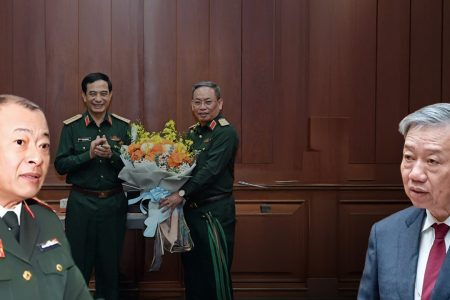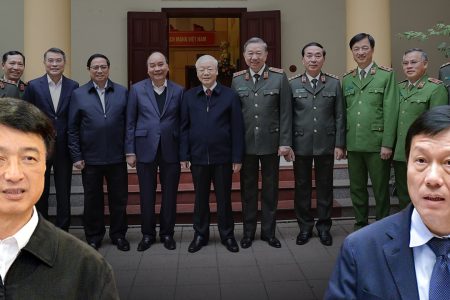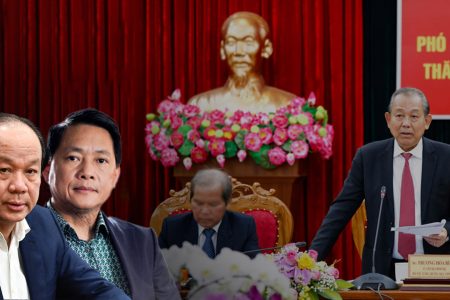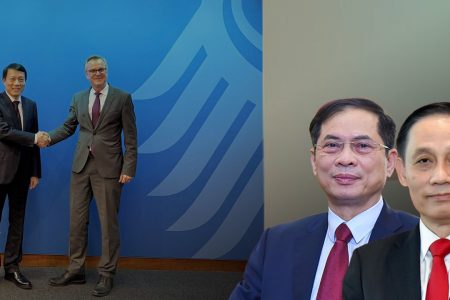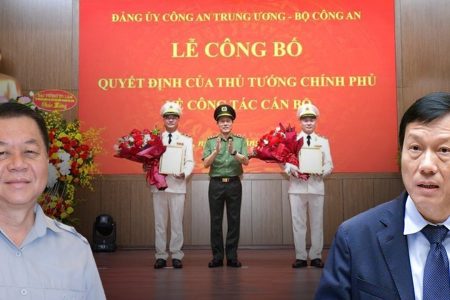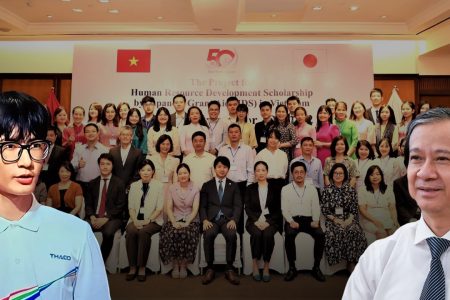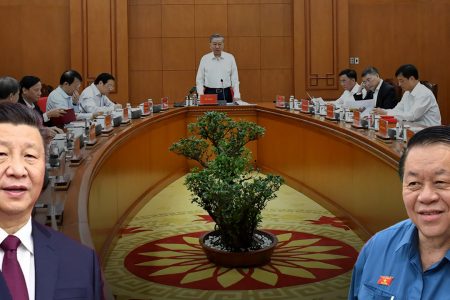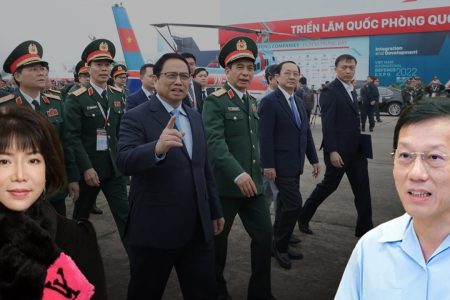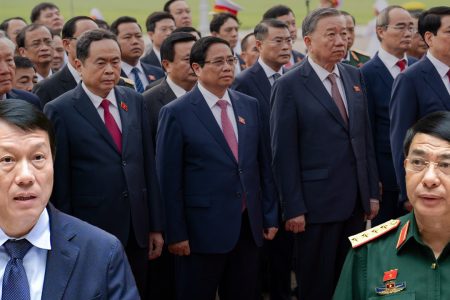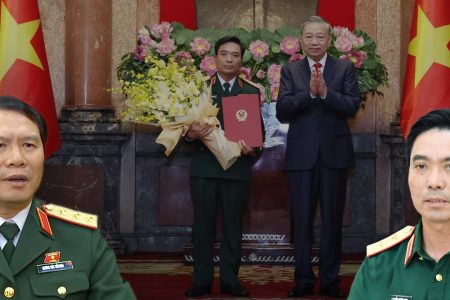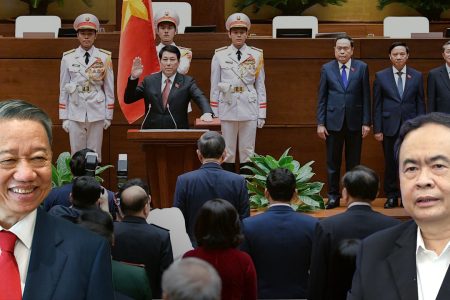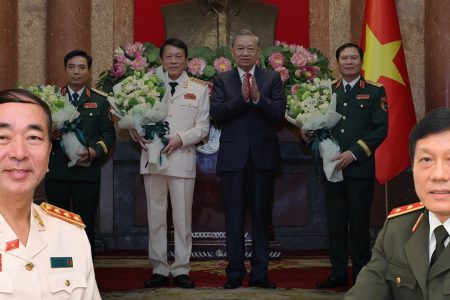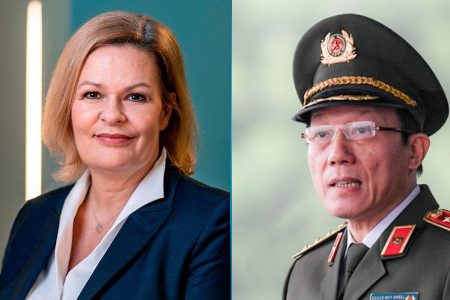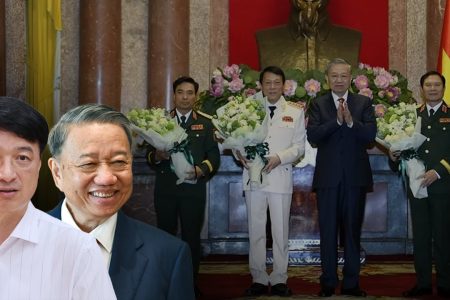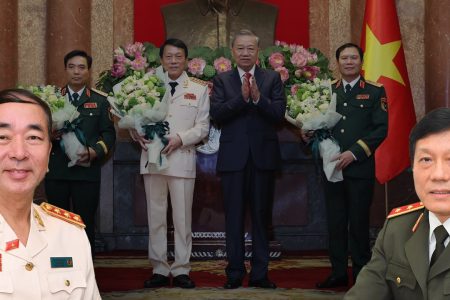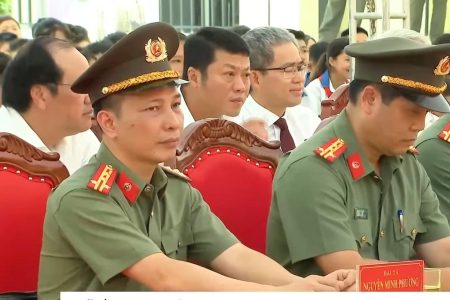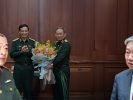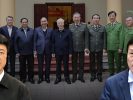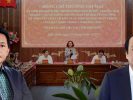
The 2nd Plenum of the Communist Party of Vietnam (CPV)’s Central Committee in the 13th term has just opened in Hanoi on March 8, 2021, and will last for two days.
The Vietnamese people are familiar with the year-round political events propagated by the ruling Communist Party of Vietnam and its government in many places
Nhan Dan newspaper said:
“The Politburo proceeded to assign the members of the Politburo and the Secretariat; initially arrange and rearrange works for the staff of a number of central agencies; at the same time, actively prepared to introduce personnel who are under the supervision of the Central Committee to become candidates for the 15th National Assembly; and discuss the implementation of a number of policies towards cadres.”
The article “Submission to the Central Committee for the decision of the state’s highest leadership titles” in the Communist Party newspaper quoted General Secretary Nguyen Phu Trong as saying:
“Try to consider the overall, most reasonable arrangement of senior officials for key posts in the possible conditions; based on the general standards of the staff; should pay attention to the capacity, the trained expertise, work experience of the senior officials and development direction; combining immediate requirements with preparation for the next courses, ensuring inheritance and development.”
Mr. Trong also emphasized, “the principle of the Party unifying the leadership of cadres work and the management of cadres in the political system.”
Reasserting the party’s leadership on the state?
On Monday, two Vietnamese news observers commented that the ruling party is increasing control and administration on the state.
From the Institute for Southeast Asian Studies (ISEAS, Singapore), Dr. Ha Hoang Hop told the BBC:
“I find that in the past when the Party Congress and the National Assembly elections were still carried out in different years, state leaders who failed to be re-elected in the party’s congress still held their positions until the other replace them after the parliament’s election.
The election of Vietnam’s National Assembly is expected to be conducted over the next few months
Since the party congress in the same year as the election of the National Assembly, there has been consolidation as it is now – from the highest offices of the state to members of the government, the judiciary, and the political system.
In doing so, the Communist Party of Vietnam affirms its comprehensive leadership role towards the state.”
From the Vietnam Academy of Social Sciences, Ph.D. Mai Thanh Son told the BBC:
“The current Vietnamese political context is very vague according to what I see, it will not have any innovation in thinking, in development strategy, in the way, in reasoning at all.
Therefore, the public and the ordinary people may not pay attention to recent and current events like this one. After the 13th National Congress of the party, there are the arrangements of power and senior posts only.
But the public does not see a clue or does not see any sign of reforming the way, theory, economic direction, or development model at all.
The new National Assembly has not yet elected but has immediately mentioned positions such as the chairperson of the National Assembly, President of the State, and the Prime Minister, so I am afraid that they are replacing the duties of the National Assembly.
Because in my opinion, it is the work of the National Assembly, but actually speaking to a totalitarian regime like in Vietnam, this is a way of doing, something quite common up to now.
One of the biggest challenges is that people have no power while the ruling Communist party decides all important issues, including the country’s leadership.”
Hearing serious cases
When the Central Committee opens its 2nd Plenum on March 8, the court sector also opens two serious cases: the appeal hearing of Dong Tam land petitioners and the Phu Tho Ethanol case.
Dr Mai Thanh Son told BBC:
“Before talking about the context, whether or not the Plenum happened at the same time as the Dong Tam case, I found that in the Dong Tam case, the biggest story is to review the legality of the whole development.
The Dong Tam case is the case of the most headache for the party and the government, besides the law and law enforcement, it relates to the party’s leadership reputation.
It not only violates the Constitution but also the Criminal Procedure Law with relations to the Army but recently has a relatively high proportion of representation in the new Central Committee.
There is a unit of the Army that is said to have owned that disputed land, but from start to end, the army remains silent.
It should have been, although it was not earlier, the question with the party and the party leadership is whether the appeal hearing of the Dong Tam case is so objective or not?
As for Mr. Dinh La Thang, in fact, the allegations of the crimes of Mr. Dinh La Thang have been made public and clear, but the question is whether only the Ministry of Transport and the PetroVietnam have made mistakes and their leaders have been punished or not, or many other state agencies and their leaders have committed wrongdoings but they don’t have to take responsibility for their mistakes.
So it is difficult to answer the question of whether the cases are randomized with the timing of the Central Committee’s 2nd Plenum or not.”
Meanwhile, Dr. Ha Hoang Hop said:
“The hearings are decided by the Court, probably in consultation with the Judicial Reform Steering Committee and the anti-corruption steering committee led by General Secretary cum President Nguyen Phu Trong.
I have not heard yet that they intend to coincide with party activities with criminal hearing dates.”
Thoibao.de (Translated)



